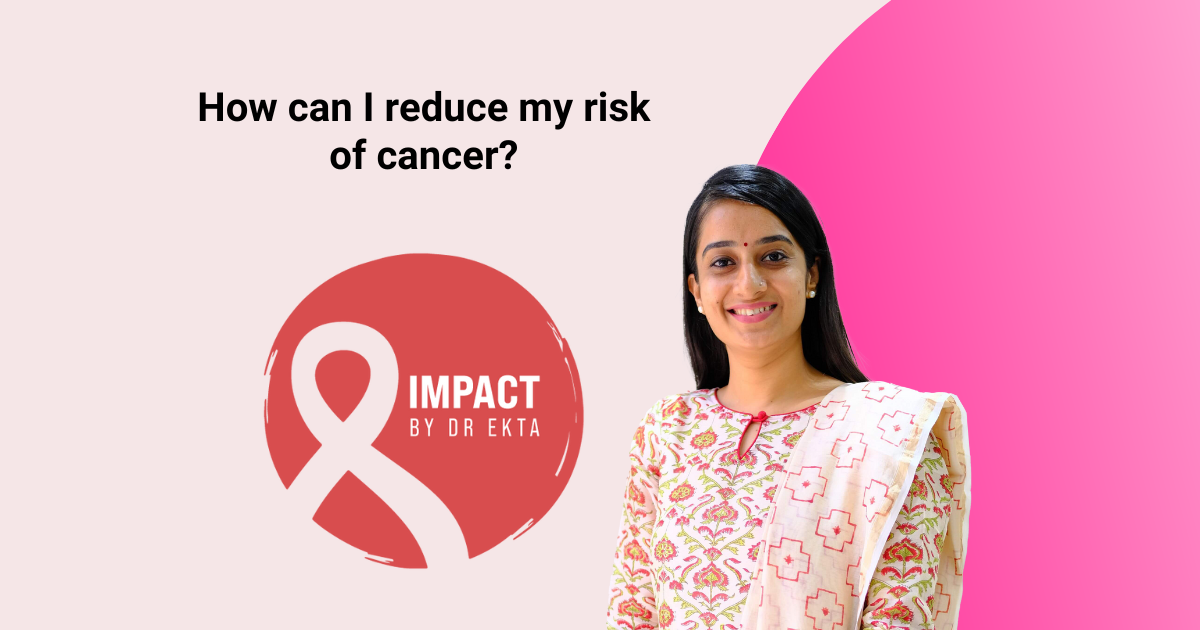Cancer continues to be one of the leading causes of death worldwide. While not all cancers can be prevented, research has shown that many lifestyle choices significantly influence your risk. If you’ve been wondering, “how can I reduce my risk of cancer,” you’re already taking the first step toward proactive health management. In this comprehensive guide, we’ll walk through scientifically supported strategies that can help lower your risk, empower your daily choices, and enhance your long-term well-being.
1. Maintain a Healthy Diet
Your diet plays a central role in your overall health and your cancer risk.
Key dietary practices to consider:
- Eat more fruits and vegetables: These are rich in antioxidants and fiber, which support immune function and digestion.
- Limit red and processed meats: Studies show that high consumption is linked to colorectal and stomach cancers.
- Choose whole grains over refined carbs: Brown rice, oats, and whole wheat can reduce inflammation.
- Avoid sugary drinks and processed foods: These contribute to obesity, a known risk factor for many cancers.
- Add anti-inflammatory foods: Foods like turmeric, green tea, and leafy greens may help reduce cellular damage.
2. Stay Physically Active
Regular physical activity not only helps you maintain a healthy weight but also reduces hormone levels linked to cancer development.
Recommended activity guidelines:
- At least 150 minutes of moderate aerobic activity per week, such as brisk walking or cycling.
- Include strength training exercises at least twice a week.
- Reduce sedentary behavior by taking short walks throughout the day or using a standing desk.
Physical inactivity is associated with a higher risk of breast, colon, and endometrial cancers.
3. Avoid Tobacco in All Forms
Tobacco use is the leading preventable cause of cancer and cancer deaths.
What you can do:
- Quit smoking if you currently smoke. Seek professional help or join cessation programs.
- Avoid secondhand smoke, which is also harmful.
- Say no to smokeless tobacco products such as gutka or snuff, which increase the risk of oral and throat cancers.
Even if you’ve been smoking for years, quitting now significantly lowers your cancer risk over time.
4. Limit Alcohol Consumption
Alcohol is linked to several cancers, including breast, liver, colorectal, and esophageal.
Safer drinking habits:
- Limit intake to no more than one drink per day for women and two for men.
- Avoid binge drinking as it increases toxin buildup and liver stress.
- Choose alcohol-free days throughout the week to reduce overall exposure.
According to the CDC, the less alcohol you drink, the lower your risk of cancer.
5. Protect Yourself from the Sun
Skin cancer is one of the most common—and most preventable—types of cancer.
Sun safety tips:
- Use broad-spectrum sunscreen with at least SPF 30 every day.
- Wear protective clothing, hats, and sunglasses when outdoors.
- Avoid sun exposure during peak hours (10 a.m. to 4 p.m.).
- Never use tanning beds, which emit harmful UV radiation.
Our blog on Skin Cancer Lump: Symptoms and Treatment Options has more in-depth information.
6. Get Vaccinated
Certain viral infections are linked to cancer and can be prevented with vaccines.
Key vaccinations include:
- HPV vaccine: Protects against the human papillomavirus, a major cause of cervical, throat, and anal cancers.
- Hepatitis B vaccine: Reduces the risk of liver cancer.
Talk to your healthcare provider about vaccine eligibility for yourself or your children.
7. Get Regular Screenings and Checkups
Early detection of cancer significantly improves treatment success and survival.
Recommended screening tests include:
- Mammograms for breast cancer
- Pap tests and HPV tests for cervical cancer
- Colonoscopy for colorectal cancer
- Low-dose CT scans for lung cancer (especially if you have a history of smoking)
Visit our Colorectal Cancer Screening Guidelines for age-specific recommendations.
8. Manage Stress Effectively
While stress alone may not cause cancer, chronic stress can weaken the immune system and affect behavior.
Stress management techniques:
- Practice mindfulness or meditation daily
- Engage in relaxing hobbies like reading or gardening
- Seek professional counseling when needed
- Exercise regularly to release endorphins
Our article on Cancer & Stress: Strategies for Coping and Support explores this topic in more detail.
9. Avoid Exposure to Environmental Toxins
Certain chemicals in the environment have been classified as carcinogens.
How to reduce exposure:
- Limit use of pesticides and opt for organic produce when possible
- Use non-toxic household cleaners
- Avoid inhaling fumes from paints, solvents, and fuel
- Check for radon gas in your home, a known cause of lung cancer
Always use protective gear when working in high-risk environments.
10. Know Your Family History
Genetics can play a role in your risk for some cancers.
Steps to take:
- Talk to family members about any history of cancer
- Share this information with your doctor
- Consider genetic counseling if there is a strong family history
- Get earlier or more frequent screenings if you’re at high risk
Knowing your background helps tailor a preventive plan that works for you.
Final Thoughts: Empowering Your Health Journey
If you’ve been asking “how can I reduce my risk of cancer,” the answer lies in a combination of healthy lifestyle choices, routine screenings, and awareness. While no strategy offers 100% protection, implementing these guidelines can significantly reduce your overall cancer risk.
For personalized advice and screening options, schedule a consultation with your oncologist or visit Medisquare Superspeciality Hospital.
Authoritative Resources:
Stay proactive. Stay informed. Choose prevention today for a healthier tomorrow.

